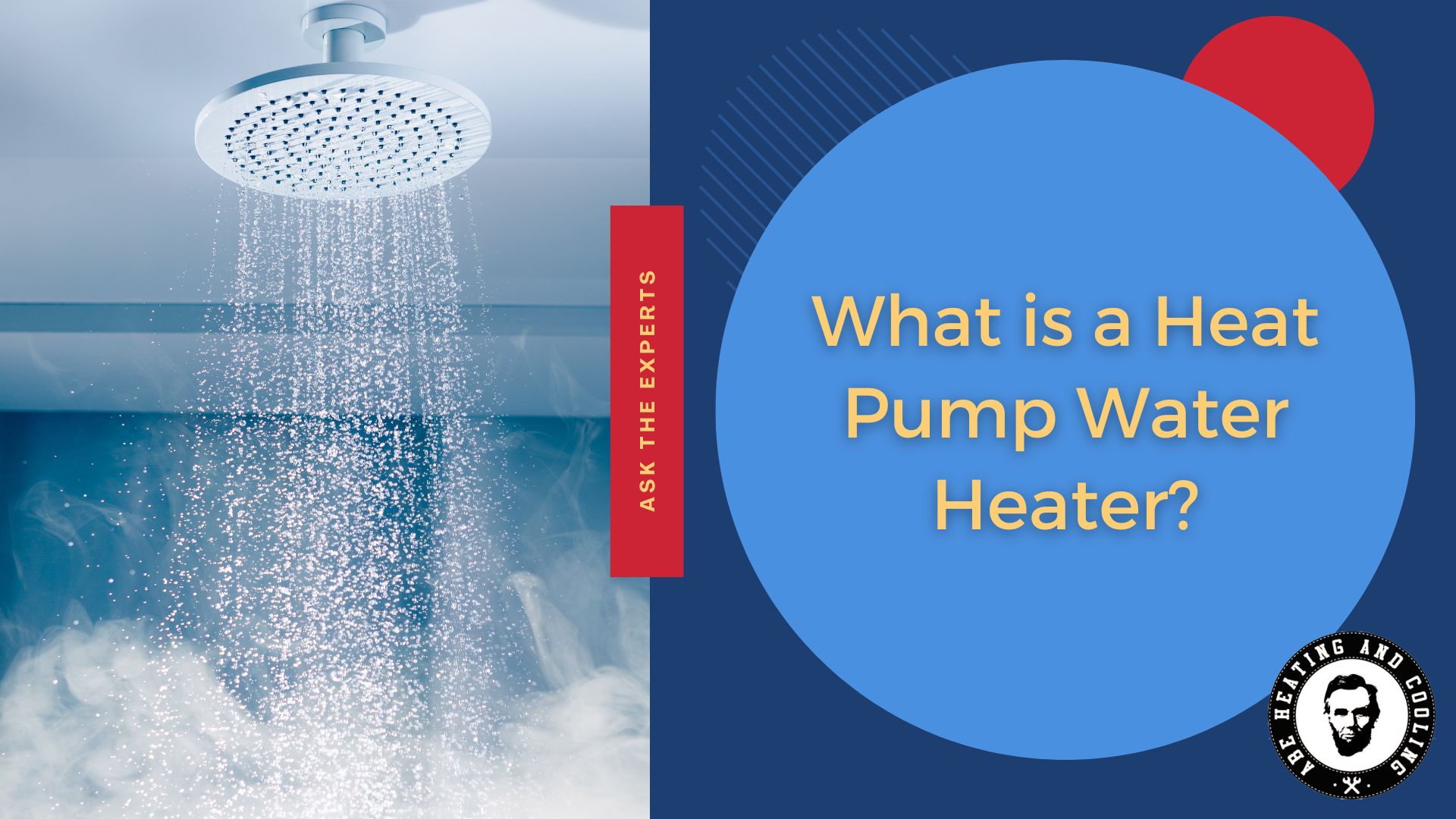“Abe's Heating and cooling were professional and on time. they helped me with two time sensitive projects and did excellent work. I know who I'll be calling if I should ever need an HVAC technician.”
Blog

A heat pump water heater is an energy-efficient alternative to traditional water heaters that can help homeowners save on energy costs. It works by extracting heat from the surrounding air and using it to heat the water in your home. In other words, it functions like a reverse refrigerator, except instead of cooling the air, it heats the water.
The heat pump water heater uses a refrigerant to extract heat from the surrounding air. Even in cold weather, there is still heat energy present in the air that can be utilized.
The extracted heat is transferred to the refrigerant, causing it to vaporize.
The refrigerant vapor is then compressed, which increases its temperature significantly.
The hot, pressurized refrigerant releases its heat energy to the water stored in the tank.
After releasing its heat, the refrigerant returns to its liquid state and cools down, ready to repeat the cycle.
Heat pump water heaters offer several advantages over traditional water heaters:
Heat pump water heaters are much more energy-efficient compared to conventional electric or gas water heaters. They can save homeowners up to 50-60% on their water heating expenses.
By utilizing the heat in the surrounding air, heat pump water heaters contribute to reducing greenhouse gas emissions and environmental impact.
Although heat pump water heaters may have a higher upfront cost than traditional water heaters, the long-term energy savings can outweigh the initial investment.
Heat pump water heaters are versatile and can be installed in various locations, including basements, garages, utility rooms, or even outside the house.
Here are some considerations to keep in mind when considering a heat pump water heater installation:
Heat pump water heaters require adequate space for proper ventilation and air circulation. Make sure you have enough space available in the desired location.
Heat pump water heaters work more efficiently in warmer climates, where the surrounding air contains more heat energy. However, they can still operate efficiently in colder climates.
It is recommended to have a professional HVAC technician install your heat pump water heater to ensure proper installation and optimal performance.
Because these systems are more energy efficient, the recovery time is longer than a typical water heater. For this reason, we usually install larger tanks, especially for homes with multiple occupants.
There are many rebates/credits for heat pump water heaters available via Gas and Electric Companies, the State of Colorado, and even some municipalities that can help with cost savings.
Regular maintenance, such as cleaning the filters and checking the refrigerant levels, is essential to ensure the continued efficiency and longevity of the heat pump water heater.
Heat pump water heaters are a highly energy-efficient and environmentally friendly solution for heating water in your home. By harnessing the heat energy in the surrounding air, it can provide significant cost savings and reduce your carbon footprint. If you are considering upgrading your water heater, a heat pump water heater is definitely worth considering.
Contact ABE Heating and Cooling for a free no-cost estimate in your Denver Metro area home, and our experienced technicians will provide you with expert advice and installation services for a heat pump water heater that suits your needs.